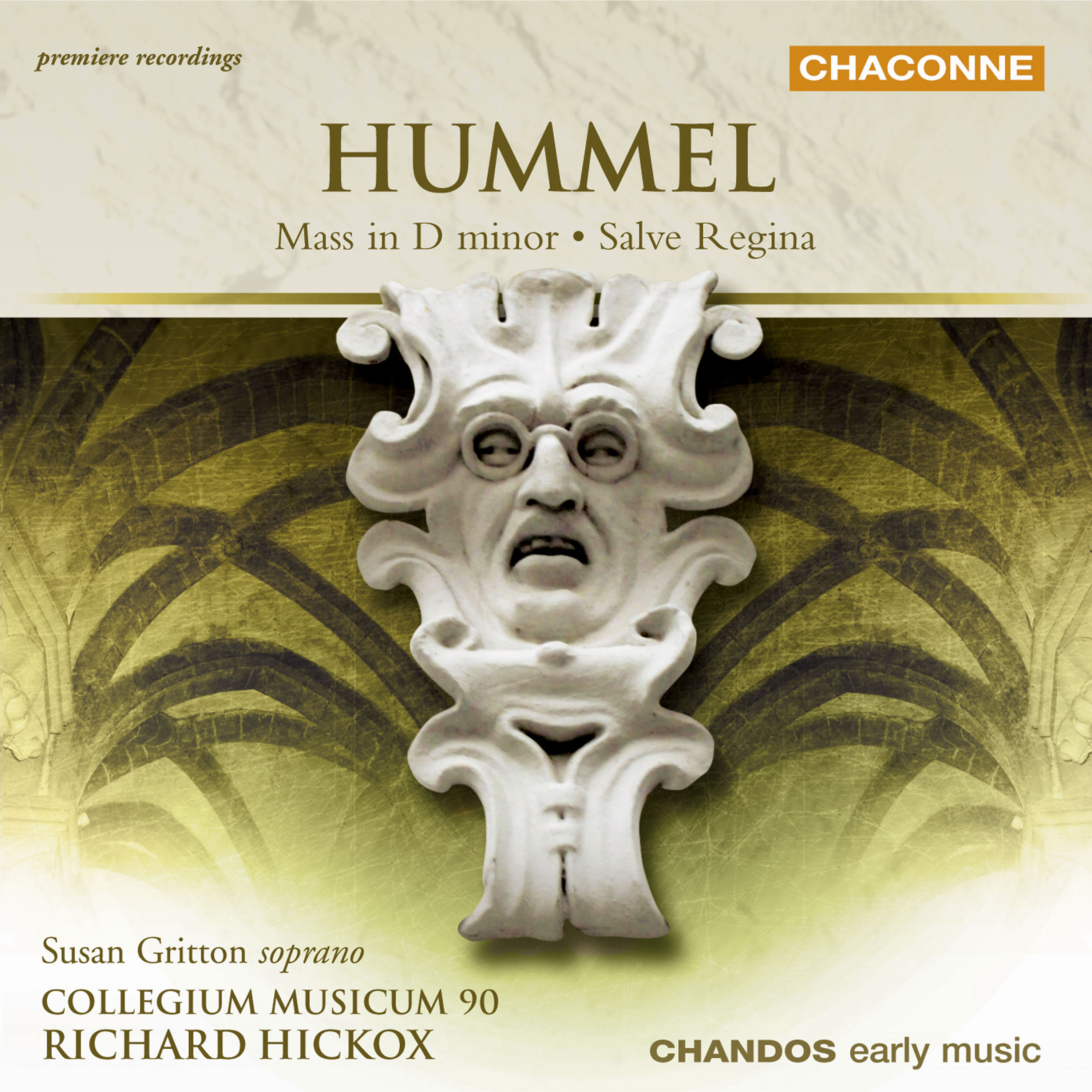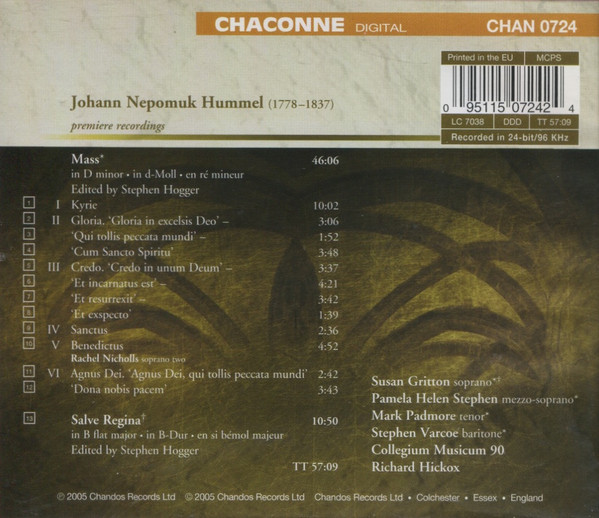Hummel Mass Series, Volume 3
A worthy series ends.
I have never really been on the bandwagon for period orchestras. Something about the tone of the strings, especially when unison, the stuffy horn sound, the wheezy winds, etc. etc. has never really been up my alley.
I've never really taken with the amped up speeds, the hard percussion, and the shortened phrases; it all leaves the music sounding cold to my ears.
This doesn't mean I can't enjoy period instruments. I just prefer hearing modern ones; but as they say, it is how you use it which makes the difference. After all, there are plenty of terrible modern instrument recordings too.
Richard Hickox's Collegium Musicum 90, which I have always inferred as including the chorus as well, has never earned my ire, but rather my admiration. They are rarely at the forefront of period news; instead it seems to me they are foremost interested in making music, trends be bedevilled.
I have never felt Hickox is ever rushing through any of this music over-hastily; in many cases Hummel's Masses have a pastoral feel, and that is exactly what we get out of the performances. I never feel the honk of the winds or the whine of the strings, but Hickox usually puts the chorus or vocalists as the center of attention.
So too, their chorus isn't stripped of body or life. In most cases, they are spirited and buoyant, at least this is true of these Hummel recordings. Also, the soloists are strong voiced from around Britain, and all are sensitive to the music.
And so, I think this series is a wonderful tribute to Hickox and his Baroque orchestra. The Haydn Mass series had too much competition, but remains a safe choice, and the little bit of Schubert and others I have heard are worthy recordings.
Rest in Peace Richard Hickox, and may you be well Simon Standage. May your efforts be sung loftily through your recordings.
A review from 2024
Works
Mass in D minor (46.06)
Salve Regina (10.50)
Soloists
Susan Gritton, soprano
Pamela Helen Stephen, mezzo
Mark Padmore, tenor
Stephen Varcoe, baritone
Ensemble
Collegium Musicum 90
Richard Hickox, conductor
Label: Chandos
Year: 2005
Total Timing: 57.09
This whole Hummel series is a treasure, and a wonderful tribute to all involved in the project.
Find more Hummel recordings HERE!



Comments
Post a Comment